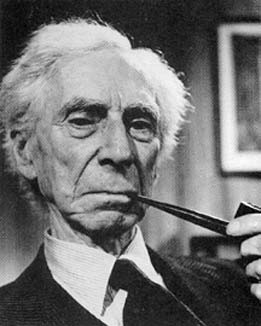The Q document or source is a hypothetical collection of sayings of Jesus, assumed by most scholars to be a common source behind the Gospel of Matthew and the Gospel of Luke, but not found in the Gospel of Mark. This hypothetical source, if it exists, is the oldest material regarding Jesus, and hence the traditions contained in it are likely to be historical because they pass the criterion of date.
Many liberal scholars, who are experts in the misuse of the criteria of authenticity, often use "Q" in order to deny the distinctive, Christian view of Jesus. They argue that many of the Christian features and sayings attributed to Jesus don't appear in "Q", and hence are likely to be later inventions. (This sort of argumentation is based on the negative use of the criteria of authenticity. If a tradition doesn't appear in the early sources, it doesn't make it non-historical, specially is such tradition passes positively other criteria of authenticity like multiple attestation, dissimilarity or embarasment.) In fact, the crucifixion doesn't appear in "Q", but does it make the crucifixion a Christian invention? Obviously not. In fact, the overwhelming majority of scholars agree that the crucifixion is the best known fact about the historical Jesus.
So, the argument "It is not in Q, hence it is not historical" is a fallacious inference based on anti-Christian prejudices and abuses of the Q material on behalf of an anti-Christian agenda. (See an egregious example
here).
On the other hand, is it true that the "Q" source present a Jesus very different than the traditional, divine view of Jesus? Like in the case of the apocryphal
Gospel of Thomas, the answer seems to be NO.
EVIDENCE OF HIGH CHRISTOLOGY IN Q
Consider the Q saying in Mattew 4: 1-7 and Luke 4: 1-11:
Then Jesus was led by the Spirit into the wilderness to be tempted by the devil. 2 After fasting forty days and forty nights, he was hungry. 3 The tempter came to him and said, “If you are the Son of God, tell these stones to become bread.” 4 Jesus answered, “It is written: ‘Man shall not live on bread alone, but on every word that comes from the mouth of God.’” 5 Then the devil took him to the holy city and had him stand on the highest point of the temple. 6 “If you are the Son of God,” he said, “throw yourself down. For it is written:“‘He will command his angels concerning you,
and they will lift you up in their hands,
so that you will not strike your foot against a stone.’”
7 Jesus answered him, “It is also written: ‘Do not put the Lord your God to the test.’”
Note carefully that the condition of the Son of God (with extraordinary divine powers and prerrogatives like making stones to become bread and being specially protected by God's angels) is attributed to Jesus by the foremost, heavenly and spiritual enemy of God, namely the Devil!
It shows that already in the very early, Q material, Jesus is seen clearly and irrefutably as the Son of God, and such divine, exclusivistic status is put not in his lips (nor in the lips of his earthly followers), but in the lips of God's foremost spiritual enemy.
This is powerful evidence for a high Christological view about Jesus in Q (which coheres well, not only with Jesus' resurrection, as an exclusive prerrogative of the Son of God, but also with the mysterious individual specifically selected by God to
suffer for others' sins in Isaiah 53; a view which was part of the early Christian teaching and considered as of
"first importance" by Paul, and with Jesus' exclusivistic self-perception as the only way to God).
EVIDENCE OF JESUS' EXCLUSIVISTIC SELF-PERCEPTION IN Q
Many liberal scholars, who appeal to Q in order to make a Jesus in their own image, a kind of New Age sage whose main activity consisted in telling a bunch of nice stories and positive thoughts in order to change people's perspectives and worldviews (more or less the equivalent to a contemporary Deepak Chopra or Wayne Dyer and other self-help gurus) often ignore or try to undermine the evidence for Jesus' exclusivistic self-perception and rigurous, severe jugdamental character in Q.
But the evidence for Jesus' exclusivistic self-perception exists in Q. Consider Mattew 7:21-23 and Luke 13:24-27.
In Mattew 7:21-23:
Not everyone who says to me, ‘Lord, Lord,’ will enter the kingdom of heaven, but only the one who does the will of my Father who is in heaven. 22 Many will say to me on that day, ‘Lord, Lord, did we not prophesy in your name and in your name drive out demons and in your name perform many miracles?’ 23 Then I will tell them plainly, ‘I never knew you. Away from me, you evildoers!
Note that Jesus links his own person with the conditions for entering God' kingdom. He see himself as someone with the prerrogative and the right of making moral and spiritual jugdments and evaluations about others and telling to the ones who are not going to be saved "I never knew you, away from me, you evildoers" (This expression clearly denotes spiritual rejection and moral reprobation).
Can any unbiased, objective person sensibly think that the Jesus in "Q" was merely a nice guy telling a bunch of beautiful stories to change other people's perspectives? Such a view is clearly a purely prejudiced, blind, wishful thinking and emotional opinion based upon a extremely limited part of the evidence.
In addition to telling stories or trying to change people's perspective (obviously Jesus did that, but not only that), more importantly Jesus was presenting himself as the only mediator between God and the human beings, and therefore as the only person with the prerrogative and the "last word" to judge others morally and spiritually regarding God's kingdom and salvation.
Consider the version of this saying in Luke 13:24-27:
Make every effort to enter through the narrow door, because many, I tell you, will try to enter and will not be able to. 25 Once the owner of the house gets up and closes the door, you will stand outside knocking and pleading, ‘Sir, open the door for us.’ “But he will answer, ‘I don’t know you or where you come from.’ 26 “Then you will say, ‘We ate and drank with you, and you taught in our streets.’ 27 “But he will reply, ‘I don’t know you or where you come from. Away from me, all you evildoers!
Jesus is putting himself in the place of the "owner of the house". Is this, plausibly, a religious pluralistic self-perception by Jesus? Obviously not. Is Jesus in "Q" being merely a teller of nice stories? Definitively NO.
He's putting himself in the foremost, senior spiritual position regarding salvation. This position allows him to make moral and spiritual authoritative judgments and reprobations about who are going to be saved and who are going to be rejected. The WHOLE point of Jesus' words in the above passage in "Q" is precisely to make such distinction between who are going to enter God's kingdom (the ones following the narrow door) and the ones who are not going to enter (the ones following the wider door or doors, which implies that MOST ways to God don't lead to God at all, they're only false appearences)..
If you don't like such Jesus, or such view doesn't make you to "feel good" is irrelevant (it tells us more about yourself than about the historical Jesus). The historical evidence is there, and you have to have the GUTS to accept it. Like it or not.
What we cannot do is to misrepresent the evidence (like is done by many liberal scholars) in order to create a Jesus who is not the Jesus portrayed in the evidence.
Consider a further saying in "Q" (Mattew 11: 27 and Luke 10:22):
In Mattew 11: 27: "All things have been committed to me by my Father. No one knows the Son except the Father, and no one knows the Father except the Son and those to whom the Son chooses to reveal him."
In Luke 10: 22: "All things have been committed to me by my Father. No one knows who the Son is except the Father, and no one knows who the Father is except the Son and those to whom the Son chooses to reveal him.”
In addition to being in "Q", this saying passes also the criterion of dissimilarity. So the saying is very likely to be authentic.
Note that Jesus claims that everything what he has received comes from God (which could be plausibly interpreted as implying full divine authority, which coheres well with Jesus's forgiving sins and correcting some laws of the Old Testament, actions which only God was allowed to do). Moreover, he explicitly excludes OTHERS from knowing God, because only the Son (Jesus), and the ones chosen by the Son, know the Father. This is pretty straightforwardly evidence for religious EXCLUSIVISM in "Q".
Could be Jesus more clear in his religious exclusivism? It is simply astonishing to discover how liberal scholars, and some non-scholars (for example, followers of the New Age, "feel good" spiritualities), try to misrepresent this clear, straightforward evidence.
They don't like a Jesus like that, that's all.
But any sane, normal adult knows that the REAL world (including the real spiritual world) is not and doesn't necessarily have to be like we want it. (Thinking otherwise implies an extreme and childish egocentrism and, at the bottom, extreme lack of humility, a desire of be like a mini-god who decides what exists or not... What kind of person can believe that God, or the spiritual world, has to be as one wants it? Why exactly Jesus, if actually divine, has to be religious pluralistic and non-exclusivistic? Why exactly, if a perfectly just God exists, evil human deeds have to be ignored and bypassed by such God? Why exactly God's perfect love have to override God's perfect justice? These and others interesting questions cannot settled on a priori grounds, specially when such apriorism is based on wishful thinking and our personal, ego-based opinions and emotions).
This put me on the track, regarding the idea that people who are sympathetic to "feel good" spiritualities have, as a rule (perhaps there are exceptions), been emotionally injured by Christians or Christian-related matters during their childhood. Because they're acting like children on spiritual matters. They are stuck in their childhood on matters related to spirituality. They have an immature, purely or mainly emotional criterion for choosing spiritual truths.
Expressions like "I don't like a Jesus like that", "I'm incapable of loving a God like that", "I don't want a God who punishes people", "If God is like that, I would prefer atheism" and so forth (that I've heard and read VERY often enough in such American people), are expressions suggestive of a child-like, immature, purely voluntaristic mentality. Feelings, desires and emotions override hard thinking and rigurous exploration of the truth. Prejudices are used as assumptions about the evidence (assumptions which often override the evidence, as shown here).
The whole approach is flawed from the beginning.
To be honest, I don't want to be too harsh or rude in this post, but I find absolutely shocking how many Americans think like that. It is astonishing (and very dissapointing).
In America, you can see people more or less familiar with the New Testament scholarship complaining about the Gospel of John being theologically coloured and late (in comparison with the synoptics), and in the same time these people follow and are sympathetic to A Course in Miracles, the Seth Material, The Aquarian Gospel of Jesus or the Urantia Book, which are extremely late, 20th century American sources about Jesus wholly disconnected from the Jewish context of Jesus' life, coming from dubtious paranormal origin and hence very much more later and unreliable than the Gospel of John (which is around the year 100 and comes from a person who "could" know Jesus directly, even though this view is minoritary among scholars), and such New Age spiritualities about Jesus offer information at variance with each other (as I've shown here), and with the earliest evidence about Jesus, including the evidence for high Christology in Q.
America is a great, amazing country, but I'm dissapointed of many people here by their immature, emotional, "feels good" approach to spiritual matters. Also, I feel a kind of sorry for them, because it is my conviction (and perhaps I'm wrong) that a mainly emotional, wishful thinking approach to spiritual matters is very dangerous and potentially self-destructive.
Only God knows...













